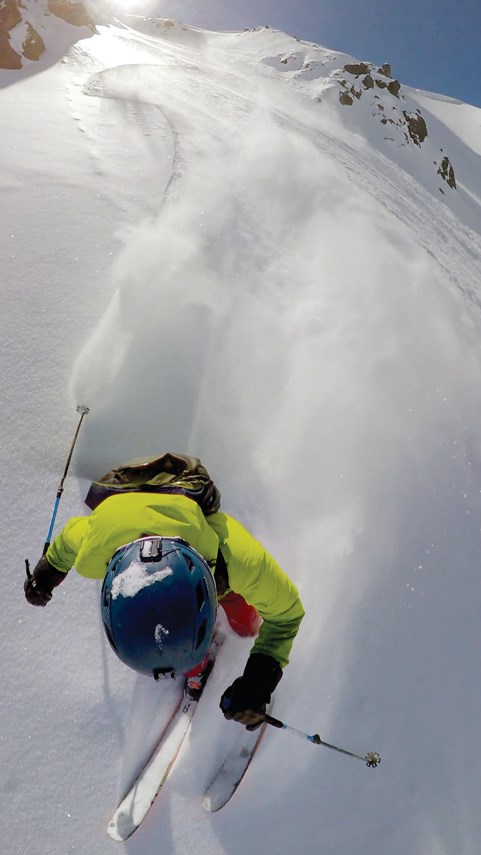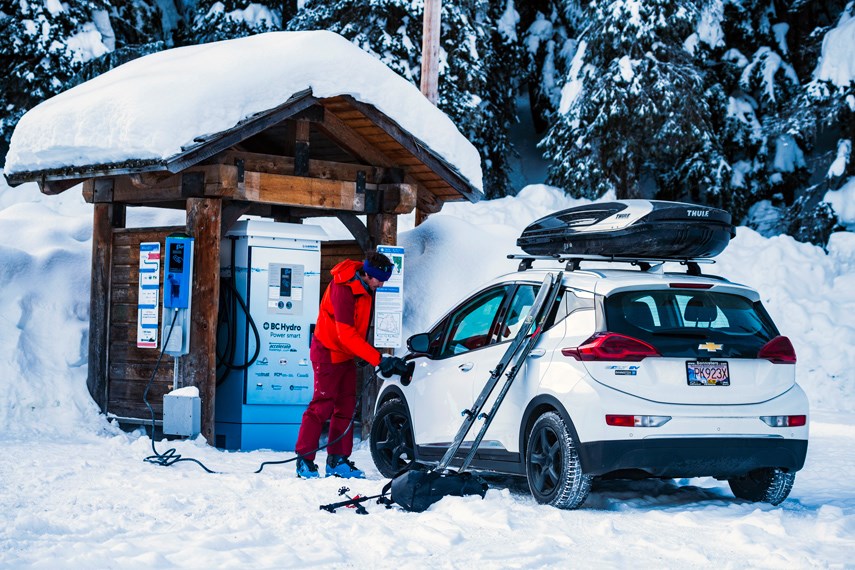If an ordinary slob needs to chase a lost horizon for an epiphany, it makes sense that a mountaineer would have his revelation on the couch.
For more than two decades, Revelstoke father and explorer Greg Hill navigated mountaintops like a city squirrel hopping rooftops. He climbed, explored and in one record-setting year he summited 71 mountains and skied two million vertical feet.
But on Pakistan’s Gaashot Mountain in 2014, Hill’s life almost ended.
There was an avalanche that “almost took me out,” he says.
Hill was around 5,000 metres above sea level when he strapped on a GoPro camera and waited for the sun to illuminate the alabaster ribbon of snow stretching before him.
But as he was carving up the mountain face like a Thanksgiving turkey, the mountain moved.
“The snow,” he writes, “was breaking up into tiny slabs, and they were all gaining speed.”
He felt time stop. In fact, it stopped just long enough for him to realize that it was too late.
Like an out-of-control motorcyclist contemplating how they can get their front wheel ahead of the rear wheel again, Hill hatched a plan. He would ski for the gully and dodge the worst of the barrage.
“I tried to jump the waterfall of snow but I didn’t make it.”
The whitewash had him, dragging him, ripping at him. He compares the experience to feeling like a doll in a dryer.
The tibia of his left leg was broken.
Writing about the experience in 2014, Hill’s biggest regret seems to be that his GoPro was lost.
“Damn that would have been some great footage,” he laments.

After the avalanche, he recuperated on the couch. Discussing the stillness that was forced on him, Hill says it felt less like being constrained and more like he was catching up on ying after a lot of yang.
“I’m sitting there broken on the couch, I might never be able to use my leg well again,” he recalls. And then there was a question he repeated: “What has my life been about?”
A voracious reader of fantasy novels in his youth, his adult life had largely been about conjuring Tolkienesque magic by escaping the cubicle-concrete-console trap and wandering amid sheer ice and jagged peaks.
Hill had trekked around the world. But as he sat at home, he considered what he’d left behind.
He’s seen glaciers recede. A recent trip to Athabasca was particularly jarring, he says, describing an iceberg that looked as diminished as a balloon the day after a birthday party.
“Things are changing,” he recalls saying to himself. “And you’re part of the problem.”
It was time to confront a contradiction that had grated on him for years. As long as the path to the great outdoors was paved for SUVs and snowmobiles, adventurers were assisting in the destruction of what they treasured most.
So, he went electric.
“Being a lover of nature, you should also try to preserve it,” he says.
After selling his beloved Ford F-350, he picked up a Chevy Bolt.
“It’s not the 4 x 4 that I need,” he begins before catching himself. “That I want,” he corrects. “But it’s been really amazing.”
He loved the pickup truck, he says. But he also knew there was “a better way to adventure.”
As a 20-year resident of an isolated town dug deep in the mountains, Hill had been skeptical of EVs. As a test of sorts, he rented a Nissan Leaf and headed south on the I-5, hitting Mt. Baker, Mt. Rainier and Mt. Shasta.
When it was over they’d chased thrills and charging stations over nearly 4,800 kilometres while skiing six volcanoes.
What was extraordinary was how ordinary it felt. The only major difference was that instead of 400 litres of fuel, they’d burned one – and that was for the stove.
Since that inaugural electric trip, Hill made it his goal to climb 100 mountains without a single emission.
“I’m completely converted,” he says.
He’s given up trips that require helicopters and snowmobiles, he says. And as sacrifices go, it seems paltry.
“It just feels better trying to be part of the solution,” he says.
His lifestyle hasn’t been overhauled so much as it’s been tweaked.
“It’s OK to be inconvenienced at times,” he says, explaining that as the car charges he tends to look for great Indian food or a second-hand bookstore.
“It’s just some personal time that you’re forced to take, which is kind of good in a culture where you’re not supposed to have any time to do anything for yourself,” he chuckles.
And as his snowmobile picks up fresh dust, Hill is hopeful he’s on the crest of a sweeping change. There are still flaws to be addressed, he says, suggesting the recycling process for lithium batteries should become more efficient.
He’s still living the life he wanted and chasing mountain peaks. Only now, he’s mindful of leaving the wilderness for the next generation who want to follow in his high altitude footsteps.
“It’s worth it in the end,” he promises.



